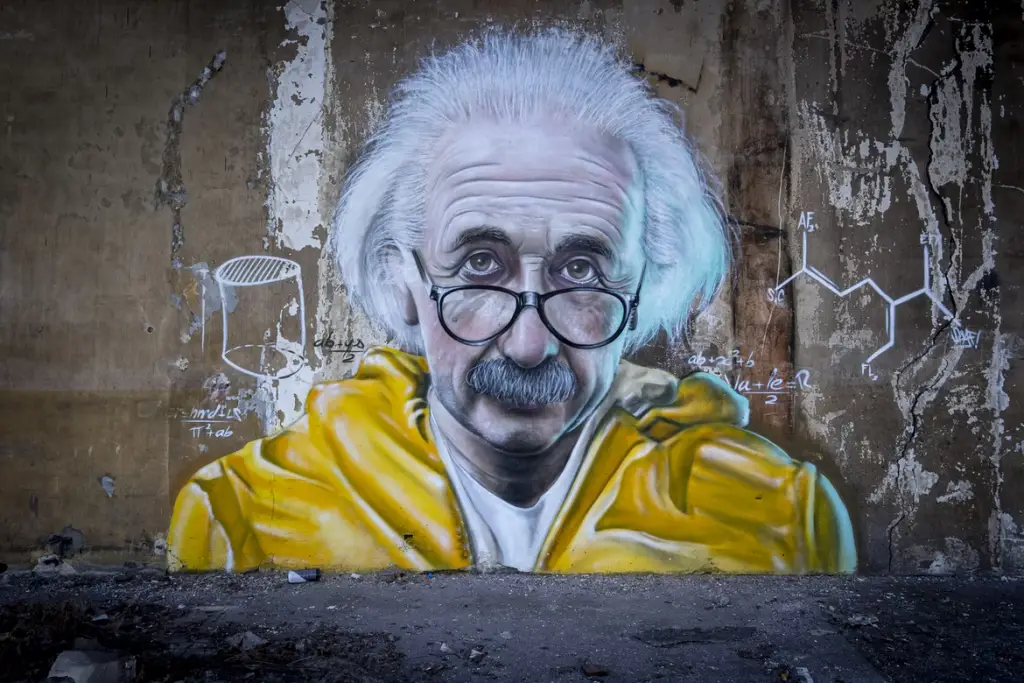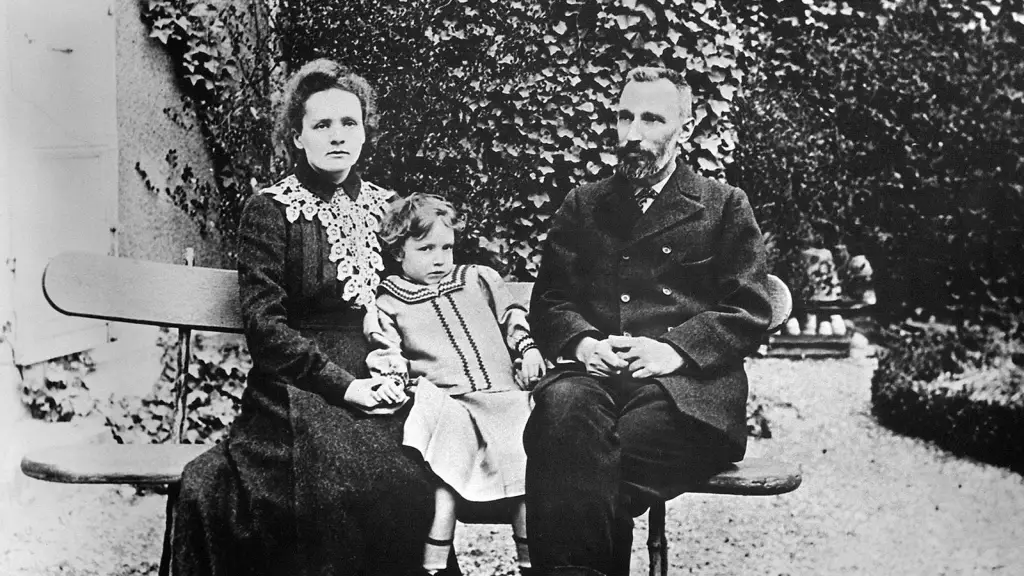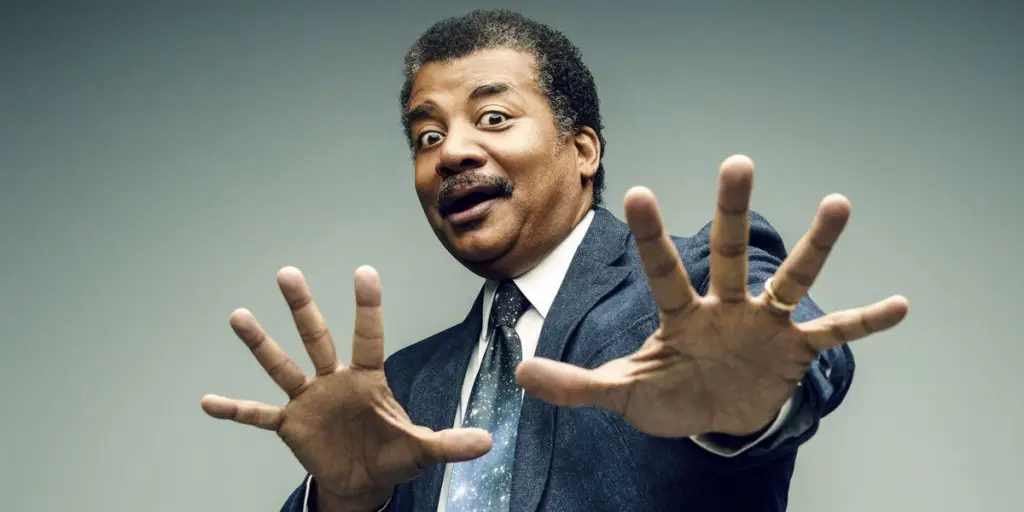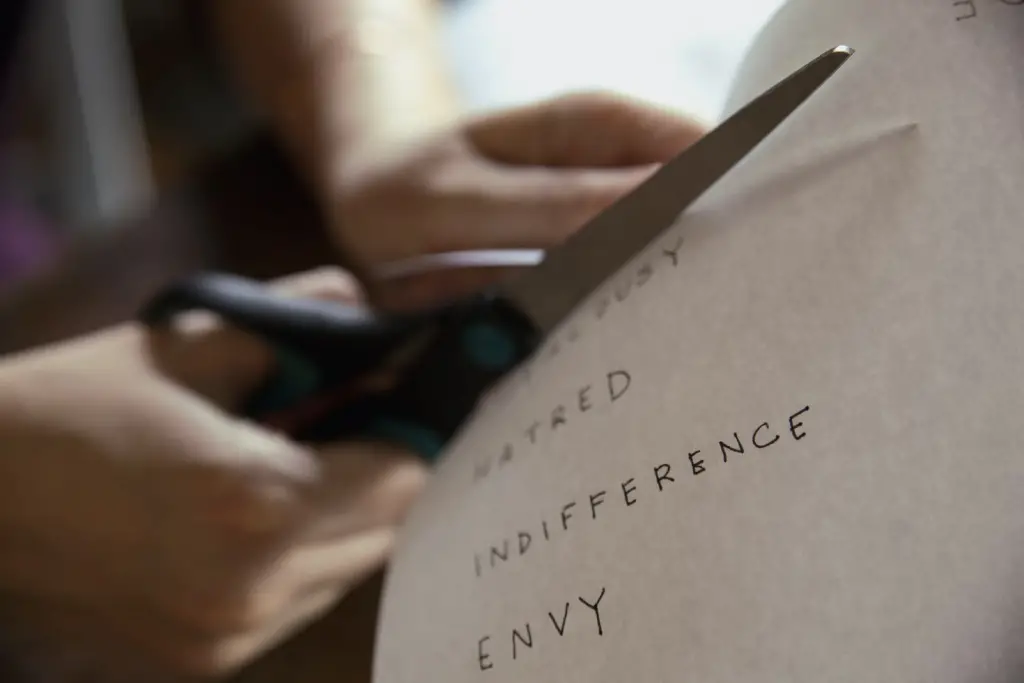It is important for people to understand what their strengths and weaknesses are so that they can utilize them properly.
“Many people don’t bother doing this because they are too busy trying to find an edge in life,” said David Goggins, a former Navy SEAL member.
You might be wondering why bother? I’m not a student anymore.
Well, read on.
Table of Contents
Why is it important to know your own Academic Strengths and Weaknesses?
To become a successful researcher or scholar, it is important to be able to identify your personal strengths and weaknesses so that you can work on improving your skills accordingly.
This way, early-career researchers and scholars can make the most of the opportunities they are given.
Furthermore, they will not be held back by any deficiencies they may have; instead, they will see every challenge as an opportunity to learn and grow.
By being aware of their academic strengths and weaknesses, early-career researchers and scholars can develop into well-rounded professionals who are confident in their abilities.
Do you know your own academic strengths and weaknesses?
At the end of this article, we have some sample questions to help you do an honest self-evaluation.
Let’s go.
22 Academic Strengths and Examples
#1. Critical Thinking.
Critical thinking is the ability to think clearly and rationally about complex issues. It involves evaluating evidence, considering different points of view, and using reason to reach logical conclusions. Critical thinking skills are essential for academic success, and they can be used in any field of study.
Check out the MasterClass of Bill Nye on problem-solving and critical thinking.
#2. Strategic Adaptability.
Adaptability is the ability to change quickly, and be able to do things in different ways. People who have this skill are good at turning an apparent failure into an unexpected success.
One example of Strategic Adaptability is Spencer Silver, a research chemist at 3M. He inadvertently created the not-too-sticky adhesive that allows Post-it Notes to be removed from surfaces as easily as they adhere to them.
This invention was done out of a failure in 1968 when he was trying to create one that was so strong it could be used in aircraft construction.
Sometimes, you may discover a solution to a problem you didn’t even realize existed. Your discovery could be a breakthrough at some point to someone if you’re adaptable and optimistic.
#3. First Principle Thinking.

The first principle is a starting point or fundamental notion that cannot be deduced from anything else. 1st Principle Thinking is the ability to challenge assumptions that are commonly accepted as truth. This is the ability to discern beliefs from facts.
The first principle is popularized largely by Elon Musk who created strong brands like Telsa. He pioneered electric vehicles and challenged many assumptions about batteries, car sales and distribution, rockets, space travel, and many things.
#4. Flexibility.
Flexibility is the ability to adapt quickly when something changes. People who have this skill can be very open-minded, and they can think of many different possibilities when solving problems.
Albert Einstein is considered one of the most flexible scientists of all time. He was able to think of many different possibilities when solving problems, and he was always willing to consider other people’s ideas. This allowed him to make many groundbreaking discoveries during his lifetime.

#5. Ongoing Learning.
This means that you are always learning. You never stop learning, no matter what grade you are in or how old you are. This is a really good skill to have because it means that you can keep learning and getting better at things.
This skill also leads to more academic strengths that lead to higher academic performance.
Today’s Ph.D. often has only one specialty and unless you are sure about the future demand and value of that skill-sets you have to be willing to keep on learning because the world will keep on changing.
#6. Analytical Skills.
Deep analysis is a skill that is used to evaluate evidence and consider different points of view. People who have this skill are usually good at critical thinking, and they can be very open-minded. This makes them good at analyzing other people’s ideas.
It’s safe to say this is one of the must-have academic strengths for academic success.
One example of someone who uses deep analysis skills is Carl Sagan. Sagan was a scientist who was known for his ability to think critically and analyze evidence. He was also open-minded, which allowed him to consider different points of view. This helped him make many groundbreaking discoveries during his lifetime.
#7. Creative Thinking.

Creativity thinking is the ability to come up with new ideas. People who have this skill usually have other academic strengths such as problem-solving and being open-minded because they can think of possibilities.
One example of a scientist who is known for her creativity is Marie Curie. Curie was a chemist and physicist. She was awarded half of the Nobel Prize for Physics in 1903 jointly with her husband for their studies of spontaneous radiation discovered by Becquerel, who received the other half of the prize. In 1911, she was awarded a second Nobel Prize, this time for her contribution to the field of radioactivity.
#8. Storytelling.

Storytelling is one of those academic strengths that most people know but don’t really practice. People who have this skill are able to explain complex ideas in a way that is easy to understand.
Scientists like Dr. Jane Goodall and Neil deGrasse Tyson are known for their storytelling skills.
Both are able to explain complex ideas in a way that was easy to understand. Dr.Tyson made millions of people rediscover their love for science. Dr. Jane Goodall shares her love for her work, which helps raise awareness about the plight of chimpanzees.
Check out their MasterClass to see how they showcase the skill. Buy this gift for yourself or your scientist friend to grow together.
#9. Resourcefulness.
Resourcefulness is about being able to find multiple ways to get things done. People who have this skill are usually good at coming up with solutions, and they can be very creative. One of the academic weaknesses early researchers have is trying to do everything themselves.
It takes some learning process and creating thinking to identify new ideas.
#10. Coding / Language Skills.
Coding is a skill that is used to create and interpret computer programs. People who have this skill simply have another dimension to their toolkit. Having said that, treat coding as a new language. Coding could be as life-changing or as insignificant as one makes it to be. Use your own judgment, and don’t just follow public opinion.
One example of a scientist who is known for her coding skills is Barbara Mittleman. Mittleman is a mathematician who is known for her work in the field of cryptography. She was able to use her coding skills to create computer programs that can be used to encrypt data. This helped her make valuable contributions to the field of cryptography.
#11. Savvy With Digital Tools.
Successful scientists are now always exploring tools to help them with their work. These tools include things like software, databases, and online resources. Today digital tools make use of artificial intelligence and machine learning, e.g., AI writing tools. Scientists who are savvy with digital tools know how to use these tools to help them do their work.
One example of a scientist who is known for her savvy with digital tools is Stephanie Pappas. Pappas is a science journalist who is known for her work in the field of psychology. She is able to use digital tools to help her do her work, and she is also able to teach other people how to use them. This makes her a valuable resource for the field of psychology.
#12. Persuasion.
Persuasion is a skill that is used to get people to agree with you. People who have this skill are usually good at making arguments, and they can be very convincing.
Your writing likely speaks the loudest in the world of science. Often, science papers aren’t meant to be engaging. But, there are times you need to write to engage others in a conversation. In order to achieve this goal, I highly recommend Malcolm Gladwell’s MasterClass on Writing.
#13. Priority & Time management
Priority management is the process of organizing and managing your time in a way that allows you to get things done. People who are good at priority management are usually able to stay on top of their work, and they can be very productive.
Don’t mistake priority management with time management. It’s like mixing motions with movement. You can make a lot of motions without moving at all. Knowing where you want to, and WHY, is priority management.
#14. Grit/Perseverance.
Grit is a skill that is used to keep going even when things are difficult. People who have this skill are usually very determined, and they are not afraid of hard work. It is also being the underdog. It’s feeling insignificant, but still fighting for what you know is right. The best example is the good old Edison’s story on failing 1,000 times. Think about it.
How many failed experiments did it take for you to give up?
#15. Growth mindset and open-mindedness.
Having a growth mindset and open-mindedness means that you believe that you can improve your skills and abilities. People who have this mindset are usually willing to work hard and they are not afraid of challenges.
#16. Resilience.
Resilience is a skill that is used to deal with setbacks. People who have this skill are usually able to pick themselves up and try again even when things are going wrong. They are also usually able to learn from their mistakes.
#17. Self-discipline.
Self-discipline is the ability to stay on track and focus on your work even when things are difficult. People who have this skill are usually able to stay motivated and they are not afraid of hard work. This makes them valuable employees and students.
In the age of TikTok and selfies, having strong self-control will be crucial to your success.
#18. Sensitivity.
Sensitivity is the ability to pick up on different things and feel what other people may be feeling. People who have this skill are usually good at communicating their ideas, and they are also able to help others if they are having problems.
#19. Collaboration.
Collaboration is the ability to work with other people to achieve a common goal. People who are good at collaboration are usually able to communicate well, and they are also able to work well with others. This makes them valuable employees and students.
A more recent example is a character on “Stranger Things”, Dustin, who has autism. Dustin lives with his older brother and their single mother in Hawkins, Indiana. He is very interested in D&D and comic books. His friends include Steve Harrington, Will Byers, Mike Wheeler, Lucas Sinclair and Max Mayfield. In the first episode, Dustin is often seen coming up with ideas of what the monster could be. He also comes up with ways to find it.
#20. Work Ethics.
Work ethics are a valuable asset to have in any field, but they are especially important in academics. People who have strong work ethics are usually able to stay motivated and they are not afraid of hard work. This makes them valuable employees and students. In the context of academic strengths, work ethics can help students stay focused and motivated, and they can also help them learn from their mistakes.
#21. Communication Skills/ Active listening.
Many people believe good communication skills mean they are talking all the time. I tend to believe that this academic strength lies in the ability to engage in active listening.
Active listening is a process to listen to others attentively much like intellectual endeavors. People who have this skill are usually able to understand what the other person is saying, and they are also able to ask questions if they need more information.
This academic strength also leads to other academic strengths such as problem-solving skills because they are able to listen and uncover where true issues lie.
#22. Online presence.
The last item on our list of academic strengths is debatable by design.
Having a strong online presence is important in an increasingly digital world. During your academic career, you will be attending conferences and events. Having a strong online presence opens up another world of possibility to you.
Just remember to set up smart goals with your usage. Don’t let it distract you and lose focus of what is important.
16 Academic Weaknesses and Examples
#1. Sense of entitlement.
Some researchers feel they are entitled to certain things because of their position. This can lead to them making mistakes or not working as hard as they should.
Researchers who have a sense of entitlement may have unrealistic views of what they should be paid, or how much time it is OK to take. They may see themselves as more important than others in their field and therefore deserving of special treatment.
In some cases, this can lead them to believe that certain rules do not apply to them – dangerous character traits that could lead to other academic weaknesses.
#2. Jealousy and Envious.

People might get jealous of what others have or they might be envious of people who are better than them. This can make it hard for researchers to work together and can ruin their relationships due to personal feelings.
Jealousy and envy can also make people unhappy, which is bad for their health. It takes strong self-awareness to realize one.
Jealousy and envy can also lead to other weaknesses such as lack of respect and poor time management.
#3. Not owning up to responsibilities/mistakes.
Researchers may not always own up to their responsibilities and blame others when they should be taking responsibility for something they did wrong.
Strong researchers set smart goals and assume full accountability for their own success and failure. They are more able to identify complex problems and sloppy work habits due to their own weaknesses.
Being aware of this academic weakness could help you turn it into additional academic strengths.
#4. Solving problems with disagreements.
Bad researchers often want to just solve problems with disagreements rather than really listening to both sides of the argument.
They might argue the problem was a lack of constructive criticism.
If this is your issue, check out Professor Terence Tao’s course on Mathematical Thinking.
#5. Lack of respect.
This often happens in high-performers who think they are too smart or too good for some tasks. These researchers may not always show the people that work for them or their managers enough respect.
Having high IQs or early achievements could turn into academic weaknesses if not careful.
#6. Taking criticism personally.
Researchers may take everything they read or hear about their work personally and get upset when it is not positive feedback that they are looking for.
It can be difficult to deal with all of these weaknesses but researchers should know that this is happening so they can try to improve their weak points.
#7. Lose of touch with the external world.
True. Not every science has to be “useful” – because the value is often in the eyes of the beholder. But, what matters is you are mindful of what your scientific community needs and work towards adding value that makes sense in your world.
#8. Lack of motivation.
Lack of motivation may be due to boredom with the task, not seeing the value in it, or feeling overwhelmed. Lack of discipline may be due to procrastination, poor time management skills, or simply being easily distracted.
In either case, these issues can lead to delays in completing research tasks, and can impact the quality of the final product.
#9. Lack of focus.
A lack of focus can manifest itself in many different ways in a researcher’s academic career. Lack of focus may lead you to feel overwhelmed and scattered.
This can lead to a student struggling to stay on task and complete assignments on time. Additionally, a lack of focus can also lead to other weaknesses described below such as “Shiny Object Syndrome”, “Short Term Thinking”, “Lack of Discipline Muscle”.
Check out this amazing MasterClass from Serena Williams – yes, it’s about Tennis. But, you will learn VERY advanced mental skills that make the athlete the best in the world.
#10. Shiny Object Syndrome.
Shiny Object Syndrome is when a researcher gets excited about a new idea and starts working on it instead of finishing their current project.
This becomes an academic weakness when a researcher can not complete one project before starting another. And, it can lead to research becoming incredibly scattered when there are multiple articles about different ideas.
#11. Lack of commitment.
This often manifests itself as researchers not having a clear plan for their work, or not being able to stick to deadlines. This can lead to a lot of wasted time and energy, and can ultimately hamper a researcher’s productivity.
#12. Procrastination.
Procrastination is when researchers put off doing their work until the last minute. This can be a weakness because they might not have enough time to do a good job.
#13. Poor time management practices.
Researchers must be very good at time management because they are responsible for teaching, writing papers, doing research, and more.
Check out these resources to help you improve your organizational skills.
#14. Short Term Thinking.
Researchers could be working for a long period of time before they see any real results from their research. Sometimes the results will come back disappointing you. Be prepared for disappointments. But stay way from the temptations of taking shortcuts or any questionable behaviors.
#15. Negligence Physical and Mental Health.
More than one-third of early-career researchers said they sought help for anxiety or depression caused by their Ph.D. studies, according to a study of 6,300 researchers. 26% of those who sought help reported receiving “real assistance” from their institutions. (Source: Stanford)
It is all too common for academic staff and faculty to experience depression, anxiety, periods of intense stress, burnout, and imposter syndrome.
It is easy for researchers to neglect their health because they spend so much time inside and doing research. Researchers should find ways to stay active outside of work and they can also talk to their supervisors about taking breaks throughout the day to exercise or do other activities.
#16. Not willing to learn and adapt every day.
One of the biggest weaknesses in the academic world is an unwillingness to learn and adapt. This often happens when researchers become too comfortable with their current situation and stop trying to improve themselves.
They may become resistant to new ideas or changes in their field, and this can ultimately lead to them becoming less productive. Researchers who are unwilling to learn and adapt may also be more likely to make mistakes, and they may have difficulty working with others.
How To Identify One’s Academic Strengths and Weaknesses:
Method 1. Self-Assessment of Academic Strengths and Weaknesses.
Your academic strengths may be reflected in some of the following areas of your life:
Here are some questions for analyzing academic strengths:
- Writing essays/term papers
- Reading and understanding books and papers quickly
- Researching topics thoroughly
- Evaluating data collected from an experiment, survey, etc.
- Connecting the dots from seemingly unrelated data points
- Make clear, concise, complete arguments with creative writing?
- Do you have the organization skills needed at your level?
- Do you have a better learning environment than others?
- Are you able to act on constructive criticism?
- Have a strong learning process?
Your academic weaknesses may be reflected in some of the following areas of your life:
What are your academic weaknesses?
- Saying no
- Promoting your work and selling your ideas
- Working with others
- Overcoming perfectionism
- Analytical skills
- Critical thinking skills
- Organization skills
- Overcoming procrastination
- Is your problem-solving skills solid? Can you describe your problem-solving process?
- Are you afraid of public speaking?
Method 2. Consult with trusted peers or advisors about Your Academic Strengths and Weaknesses.
A second way to identify your strengths and weaknesses is to ask people you trust. Often this may be close friends, teachers, or former bosses you have had in the past. The important thing is that they are familiar enough with you- know what you are capable of doing- for them to answer this question accurately.
Doing this will allow you to get a more accurate view of your academic strengths and weaknesses.
Well, having the courage to reach out and ask is a sign of emotional strength already!
Method 3. Journaling and Reviewing Your Own Life.
Another way to identify your strengths and weaknesses is by looking back over your life. You can do this writing in a journal or reviewing past papers, trying to remember the amount of time you spent on them relative to other activities.
Final Thoughts
It’s important to know that “Every strength if overused becomes a deficit” according to Deb Levy, a Harvard Extension career workshop leader.
I will venture to argue that it is a corollary that every weakness if used properly becomes an asset.
Knowing your academic strengths and weaknesses will require you to first realize you may not know yourself as well as you should.
For more, check out our resource page that helps scientists build academic strengths.


